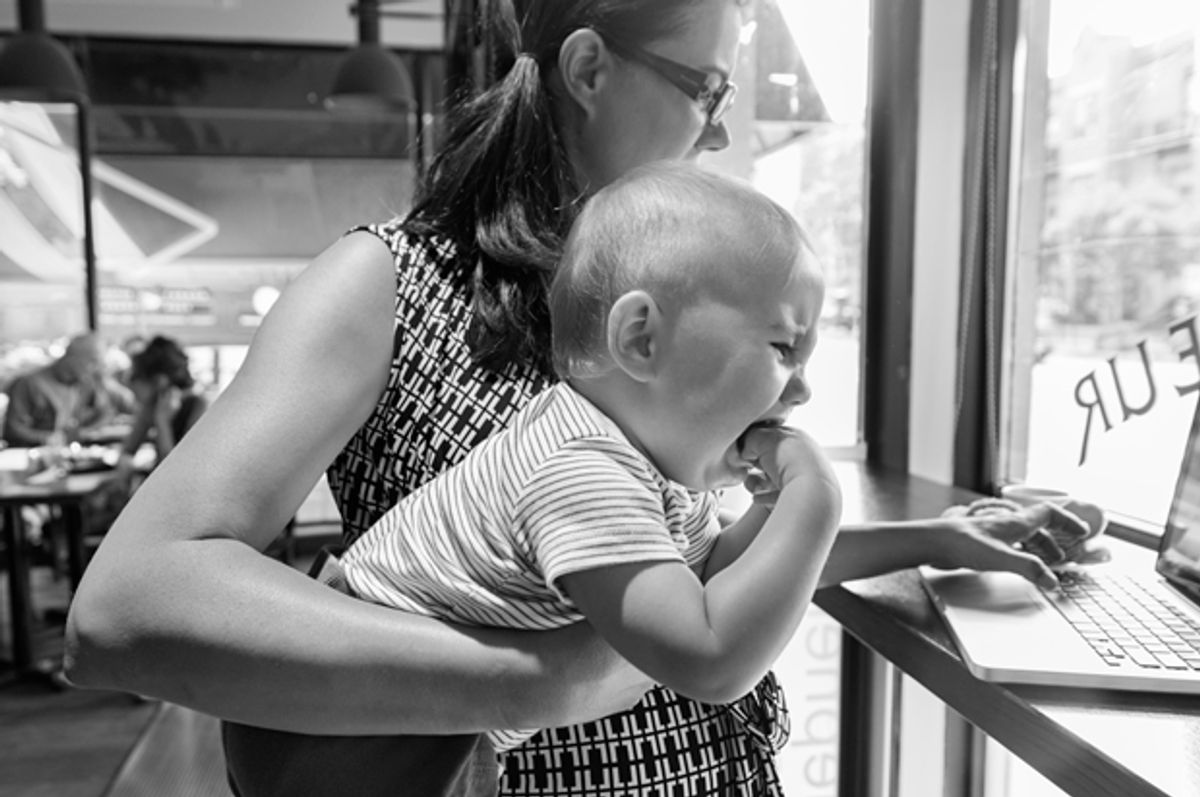The sight of tiny babies playing with touch screens is not exactly a new phenomenon. Toddlers strapped in strollers watch cartoons on their parents' smartphones. Young children with headphones larger than their heads bump into you on the sidewalk. And it’s no longer unusual to walk into a restaurant and notice that at many tables, every family member is chatting or texting away on their phones. But for all of the convenience and entertainment the digital age has given us, there are significant setbacks with lasting consequences.
A study by Scientific Reports published last year revealed that there is a significant correlation between the use of touch screens with sleep problems in infants and toddlers. Traditional screen time, such as television and video games, is well known to affect sleep, but with the ubiquitousness of touch screen devices — phones, tablets, cameras — the link between media and loss of sleep may be consequential for infants and toddlers as well. This is particularly worrisome because when infants are unable to get the amount of sleep they need, their cognitive development is threatened.
The study collected data from 715 parents using an online survey that asked questions about media use (daily exposure to television and the use of touch screens) and sleep patterns (nighttime and daytime sleep duration, sleep onset, and frequencies of night awakenings). They discovered that 75 percent of toddlers between 6 months and three years use a touch screen on a daily basis, but that this number increases wildly across the age bracket. Fifty-one percent of babies between 6 and 11 months use a screen. However, nearly all of those babies, a whopping 90.05 percent, are partaking in the same activity when they are 25 to 36 months of age.
Every additional hour of tablet use by these infants was associated with 15.6 minutes less total sleep per night — 95 hours of less sleep a year.
Scientists suggest there may be several reasons why screens affect sleep. Time spent on media displaces time that children have available for sleep, pushing back bedtimes and causing a shorter duration of sleep. The content of the media may also activate psychological and physiological arousal, making it more difficult for children to fall asleep and limiting their potential to get a good night’s rest. Additionally, the bright blue lights from screens can interrupt the circadian rhythm by suppressing the release of melatonin.
Without enough sleep, babies will suffer later on in life. It is well-recorded that sleep allows us to build and strengthen connections between the left and the right hemispheres of our cerebrum. These connections are particularly important when the brain is still forming. Without them, without sleep, babies are losing the opportunity to reach their full potential of cognitive development.
As a silver lining to the widespread use of touch screens, the study also found the devices can help to improve babies’ motor skills. Celeste Cheung, coauthor of the study, said parents need not be overly concerned, but should "be aware of the potential impact of touch screen devices — both positive and negative."


Shares